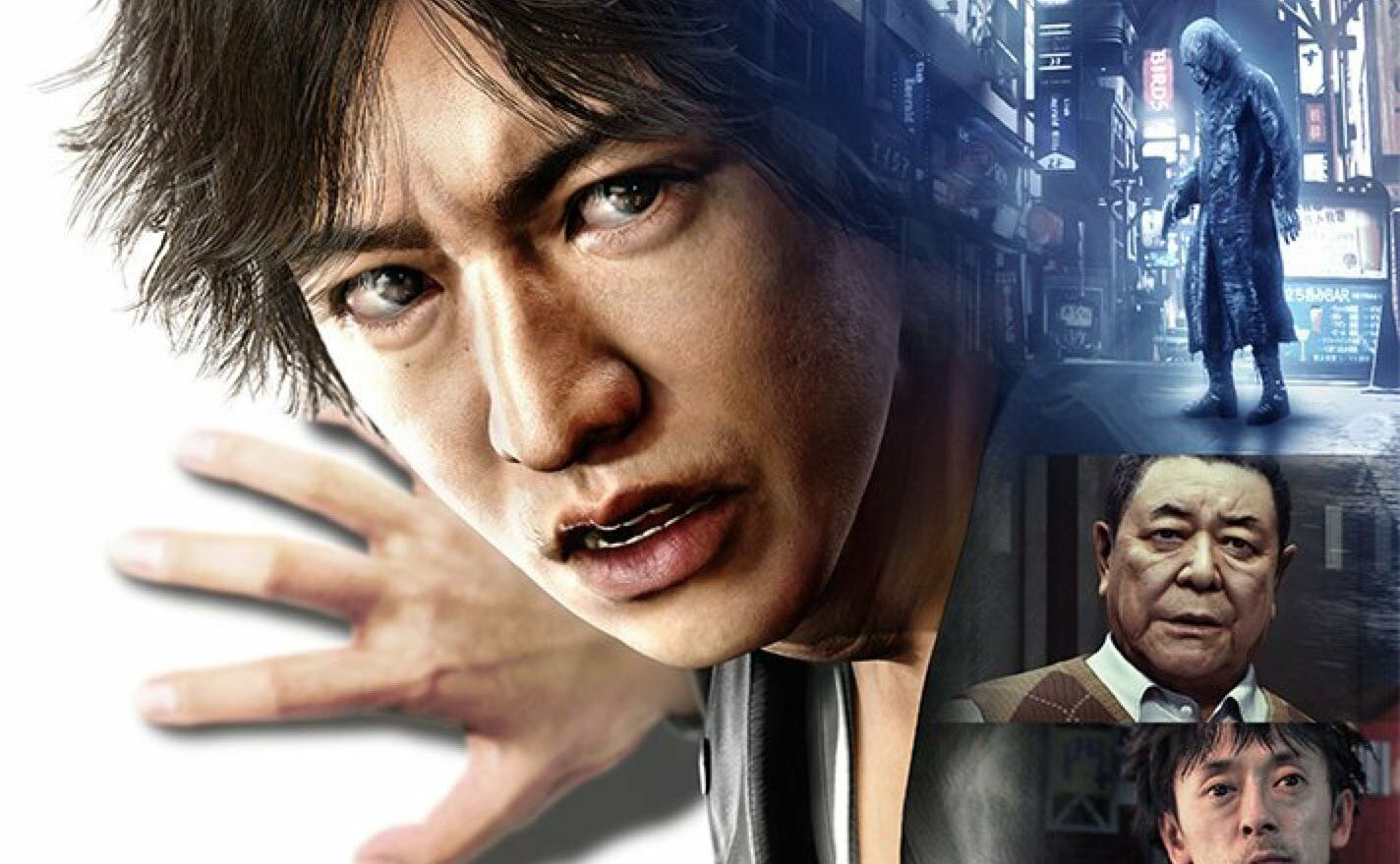
Upon the announcement of Ryu Ga Gotoku Studio’s newest title, Judgment, I wondered how the events in the city of Kamurocho would change since the departure of one of my favorite protagonists: Kazuma Kiryu.
Utilizing mostly similar gameplay as the Yakuza franchise but with new investigation focused mechanics, the return to Kamurocho would be nothing short of an interesting one. Diving into the game, I wondered if Judgment would be able to stand on its own or be a shadow of the previously mentioned game series.
To get this out of the way: I am a long running Yakuza fan and am proud to own all of the games. For years, I have battled with people to explain that it’s not a Grand Theft Auto clone as many came to believe. Now, with its spike in popularity I’m nothing but ecstatic to see the series grow and evolve, and be at the forefront of gaming.
Judgment
Publisher: Sega
Developer: Ryu Ga Gotoku Studio
Platform: PlayStation 4 (Reviewed)
Release Date: June 25th, 2019
Players: 1 Player
Price: $59.99
Judgment’s story is a well woven tale of special interest, yakuza politics, bureaucracy, and murder in a city with a 99.99 percent conviction rate. Enter Takayuki Yagami, a young lawyer who gained instant popularity by getting his latest case acquitted.
Quickly, his fame turned sour as his case was tarnished as the person he was defending committed murder moments after. Shaken by the events taken place, he quits working his lawyer position and begins a new role as a private investigator.
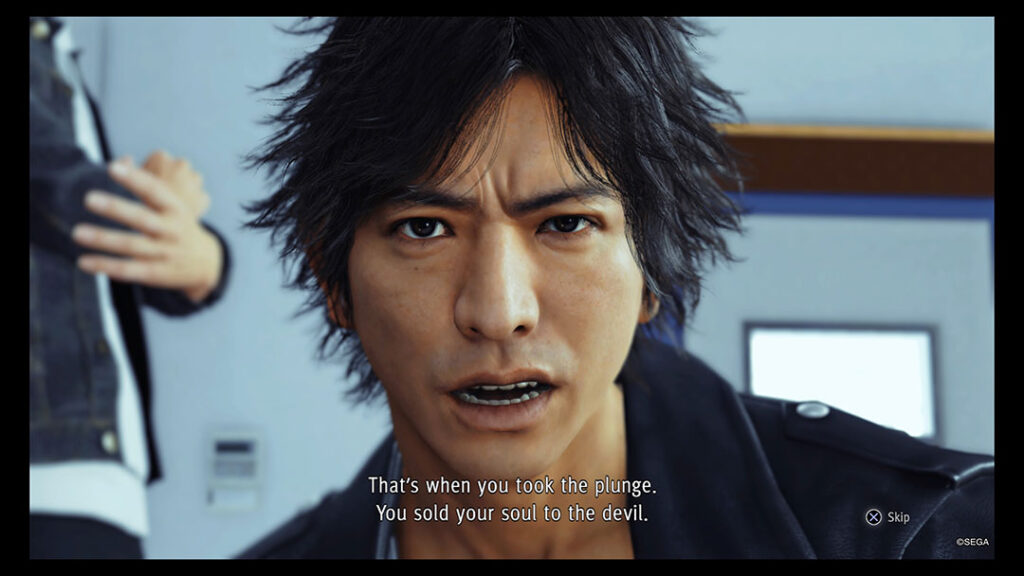
Throughout the story events unfold into the investigation of a serial killer simply known as ‘The Mole’, and the chains binding Yagami to the past become clearer. The noir inspired tale and its cast of fantastically written characters kept me engaged and at the edge of my seat throughout the game.
While at some points it did feel a bit padded out, at many points things tied together for the overall plot well. Most of the padding came in the form of interacting with the day to day life of the cast. While some of it did not relate to the overarching story, it gave a lot of insight to Yagami and his friends, and had me enjoy them a lot more.
One issue I have is that player choices in the game really did not matter too much. It would of been nice to experience different paths in the story throughout my investigations. Instead, you become focused on one plot without much in the way of variety. It would of been nice to see like say investigating events from a different angle.
Throughout the game you can do a total of 50 side quests and make friends to aid you along the way. Taking a break from the overall serious plot, they can range from catching someone in a moment of infidelity, to tracking down notorious perverts such as the butt grabbing Ass Catchem. I thoroughly enjoyed doing these side events when taking breaks from the main story.
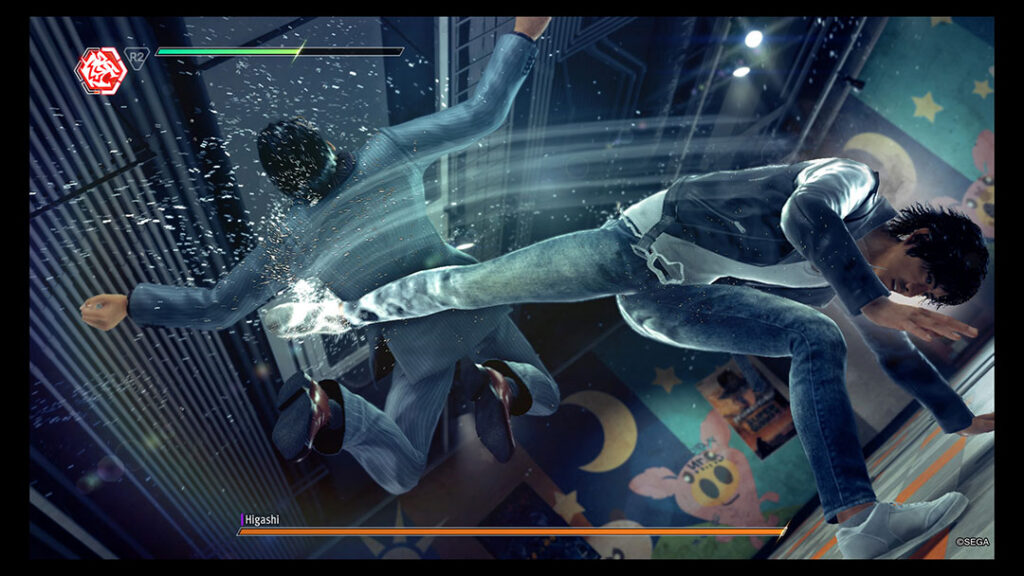
Throughout the game Yagami gains experience to spend in a wide array of upgrades. From harder hitting attacks to assistance with picking locks, each one of them has its place and is seemingly not wasted. Some of them can only be unlocked for purchase after finding skill books or snapping images of QR codes on posters.
The highest level upgrades, however, do become a bit grindy to get but for the most part remain optional if you’re not doing a competition run. Some of the most important ones to get are physical attributes such as health, damage, and speed. I also suggest getting the additional dice rolls for the mini VR board game, to assist with one of the best ways to get money.
Along the same lines of the Yakuza games, there is a wide array of side activities to do. From visiting club Sega to playing classics like Space Harrier or Fighting Vipers, going on dates, racing drones, playing darts or even the occasional rounds of Shogi or blackjack, there are many things to unwind on. It wasn’t uncommon for me to spend hours doing these side activities.
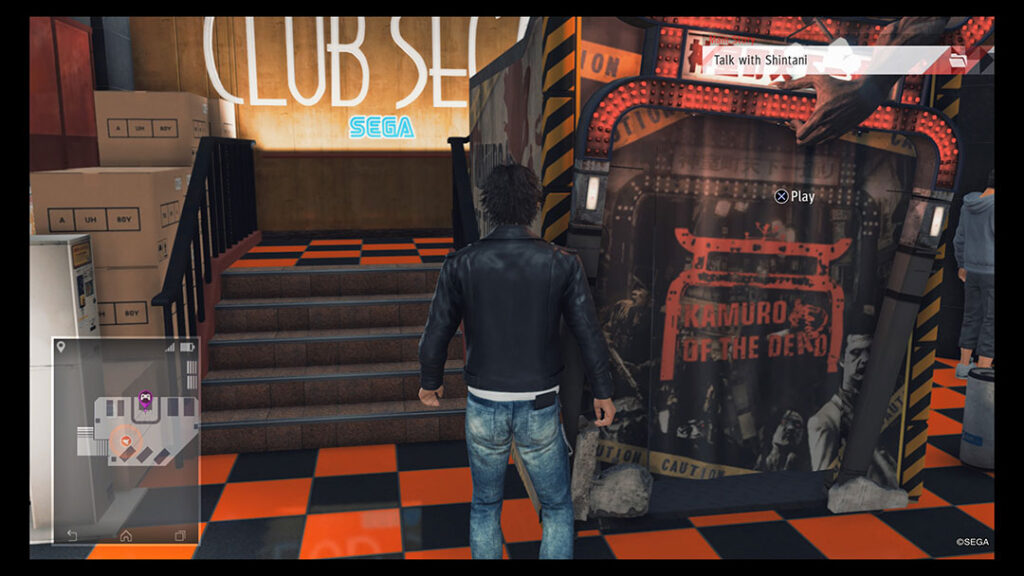
Oddly, one major staple that fans loved in the Yakuza games does not appear. Karaoke is now absent from the game, which is disappointing as it was one of my favorite quick activities to do. Still, I couldn’t help being excited there is a playable House of the Dead-inspired game, Kamuro of the Dead. Even if it replaced one of my favorite mini games, it still was an enjoyable time.
Throughout my time in the city, combat has always been inevitable. Rival gangs, yakuza, and street thugs were often on my tail. Yagami uses two styles of his mostly self-trained fighting style. The first is his Crane style, which is adept at taking out multiple enemies at once using sweeping attacks and acrobatic abilities.
Depending on the strength of the enemies, I’d use Crane style to clean up and focus on a harder enemy. Switching off to Tiger style, Yagami becomes more geared for one-on-one fights that deliver more powerful blows. Utilizing these two combat abilities becomes key quickly as if the fight carries on too long police, can come and arrest you – or you’ll deal with harder enemies in the later half of play.
Throughout fights you are able to execute EX moves that deal devastating blows to make quick work of unsuspecting enemies. From watching Yagami throw someone to a wall and kneeing someone in the face, to doing drunken martial arts, they were satisfying to watch even if they got a bit repetitive towards the end of the game. Yagami can also spend his EX meter to enter burst mode, increasing his attack power, while also preventing him from being stunned.
One thing to watch out for is some enemies have Deadly attacks which can turn the tables against you if you’re not careful. These attacks damage your health bar, rendering you unable to heal to a specific amount. The only way to cure this affliction is to have a first aid kit on hand, or visit a back alley doctor. They are not cheap and it really forces the player to be aware in combat.
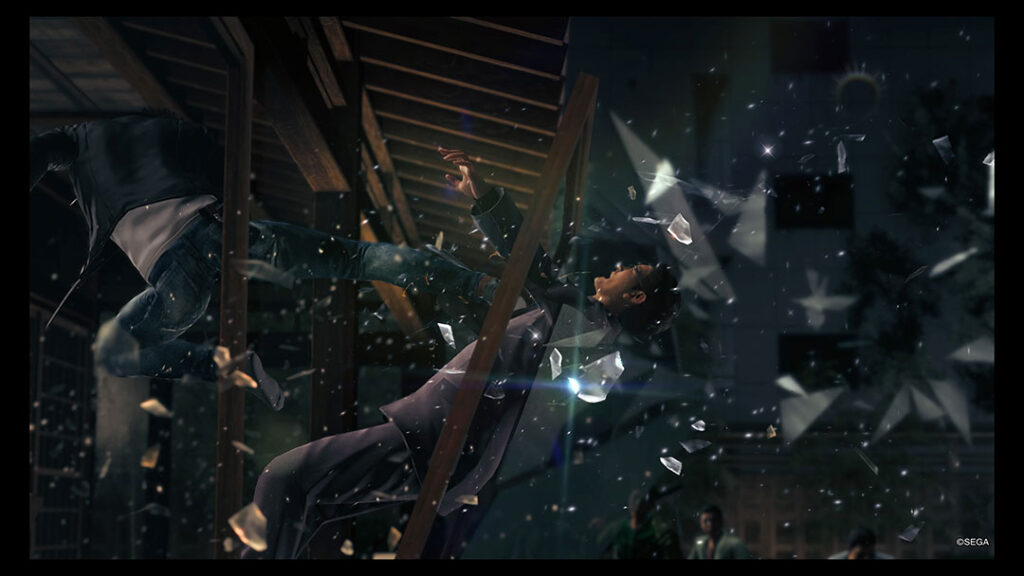
I had one frustrating issue when it came to combat during my playthrough. A few rare times when fighting, when an enemy was against the wall in some of the tight alleys of Kamurocho, they would seemingly slide to another location, interrupting my chain of attacks.
Noticeably, this was not a dodge being done by the NPC, but the game engine placing an enemy to a new location. The couple of game overs I had with the game were purely due to his while dealing with tougher enemies.
The addictive features of the game such as investigation, chasing and tailing, and so on add a good bit a variety to the game. Each one of these features help bring the emphasis that Yagami is a detective to the forefront, and through gameplay helps boost the atmosphere. The major issue is that the appeal of some of these events can wear thin after looking beyond the surface.
The chase down sequences, for example, start off exciting but as the game progresses, it’s easy to feel the repetitive nature of automatically running and pressing buttons to dodge on screen obstacles.
Tailing people also can sometimes run on too long, and just boils down to keeping your distance and hiding when needed. While these elements do not detour from the game, they could use some more fleshing out.
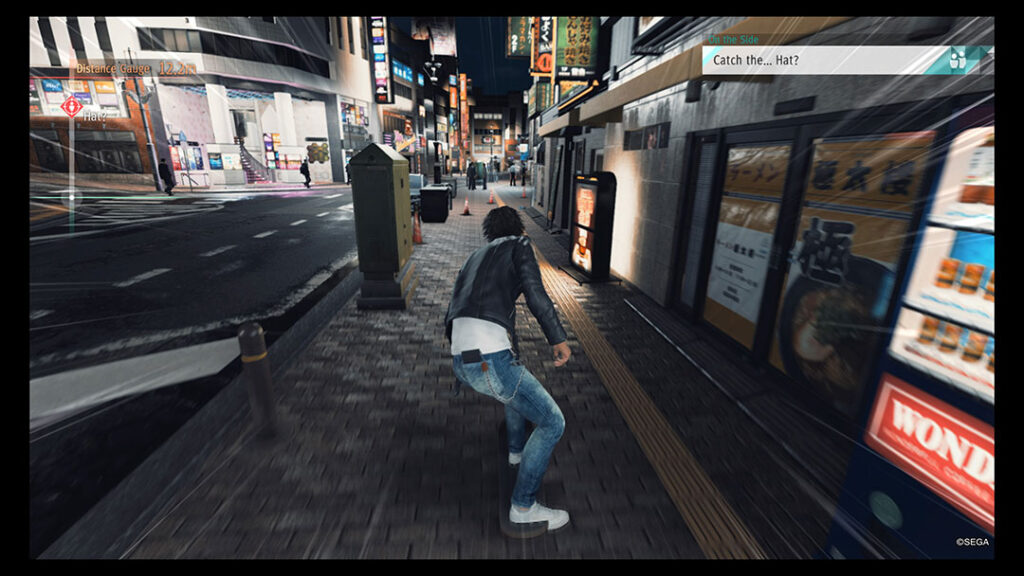
Visually, the game looks great and is highly detailed and combined with great character animations, the visual experience stands out. There is a noticeable change when the game switches from in game graphics to full motion video sequences.
However, there is consistency between them that does not make it disrupting to the eye. For those who are wondering, the game noticeably runs at 30 frames per second and has some drops during some sequences in the game, which can become jarring.
Judgment comes with both English and Japanese voice work. While the English dub is well done, I personally have preference to the Japanese dub. The lip syncing on the character models do not match with the English voices and can take away from some of the immersion from the story.
It will come down to the players personal preference on which they use but for myself, I just find the Japanese language with subtitles better – and it simply adds more to the atmosphere.
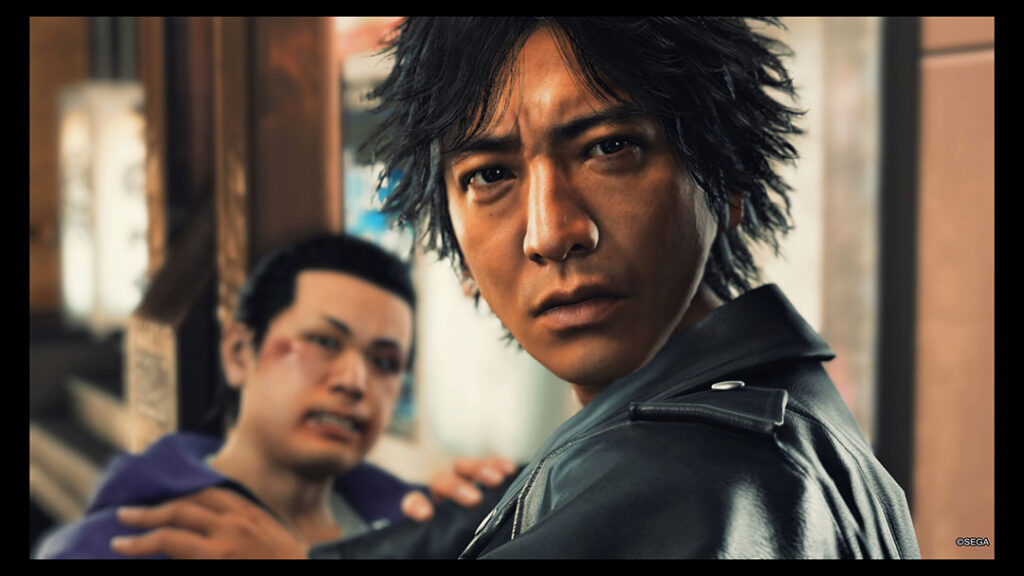
The musical score to the game fits with the noir motif that the game is built on. Each track nicely ties in cohesively to what is currently going on the screen. From mysterious songs playing in the background to upbeat fighting tracks heavy on bass, I can’t recall one that I seemingly disliked. Even the one that I found mostly passable grew on me by the games end.
For people who never played a Yakuza game and wonder if they can jump into Judgment the answer is straightforward. Judgment’s story does not have cameos of major characters from Yakuza or plot points that would strongly tie them together. In short it’s a good game to jump into without knowing the long history of the turmoil that happened in the Yakuza series.
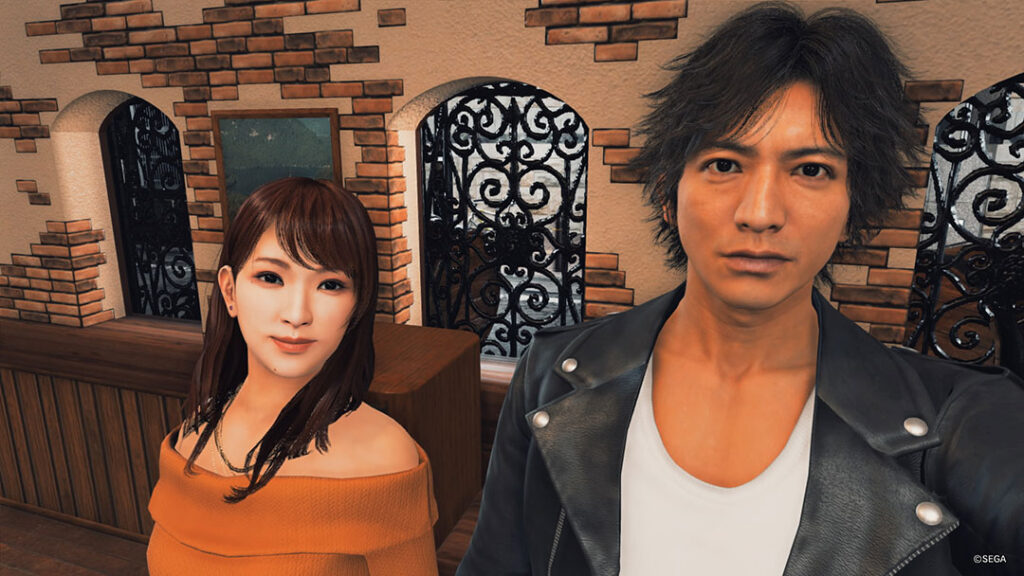
While I do have a bias for my love of Ryu Ga Gotoku Studio’s and Sega’s games, I did enjoy playing Judgment more than quite a few of the mainline Yakuza games.
Judgment has its faults that are hard to ignore, but its deep story, intense combat, and a wide variety of side activities kept me glued to it for days on end. Judgment is a great game that is well worth the attention to Yakuza fans and newcomers alike.